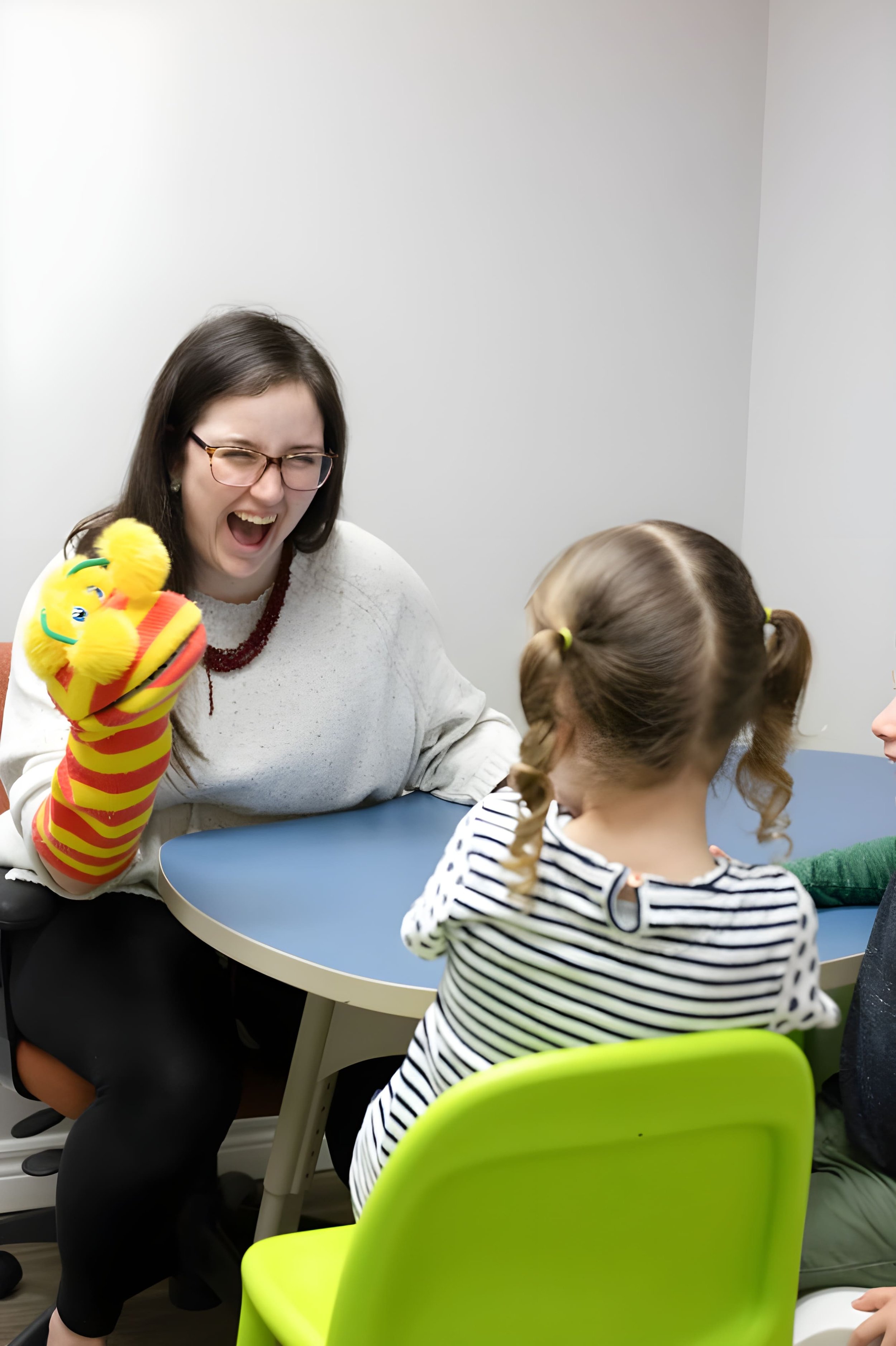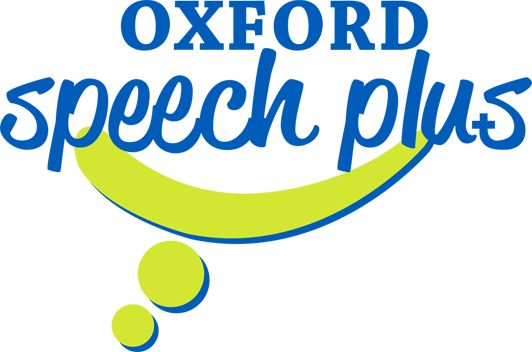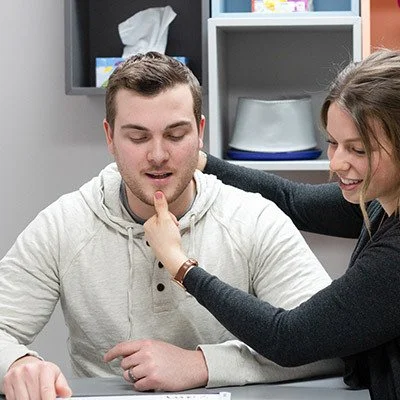
Motor Speech
What are Motor Speech Disorders?
Complex coordination between the brain and the speech muscles are required to produce speech. Signals from the brain tell the speech muscles how to produce sounds. Children with motor speech disorders (including apraxia) know what they want to say but have difficulty planning and coordinating speech muscles needed for the production of speech. Other motor speech disorders may involve significant weakness or impaired movement of speech muscles which can make speech sound slurred or slow.
The Role of Speech and Language Therapy in Motor Skills
Therapists at Oxford Speech Plus are trained in Kaufman Speech and Language Protocol which uses words and syllables that your child can already produce to shape more complex words and syllable shapes. Some Speech-Language Pathologists at Oxford Speech Plus are also trained in PROMPT Therapy (Prompts for Restructuring Oral Muscular Phonetic Targets). This research based therapy approach uses touch cues on the child’s speech articulators (ex. Jaw, lips, tongue) to shape correct movements needed to produce speech sounds and to increase motor control over speech muscles. It is important to note that children with motor speech disorders may have a wide variety of difficulties and an individual approach to therapy will be taken with each child. The therapists at Oxford Speech Plus understand the value of making therapy both effective and enjoyable for your child. If you think your child has a motor speech disorder, call Oxford Speech Plus to book an assessment or therapy session.

